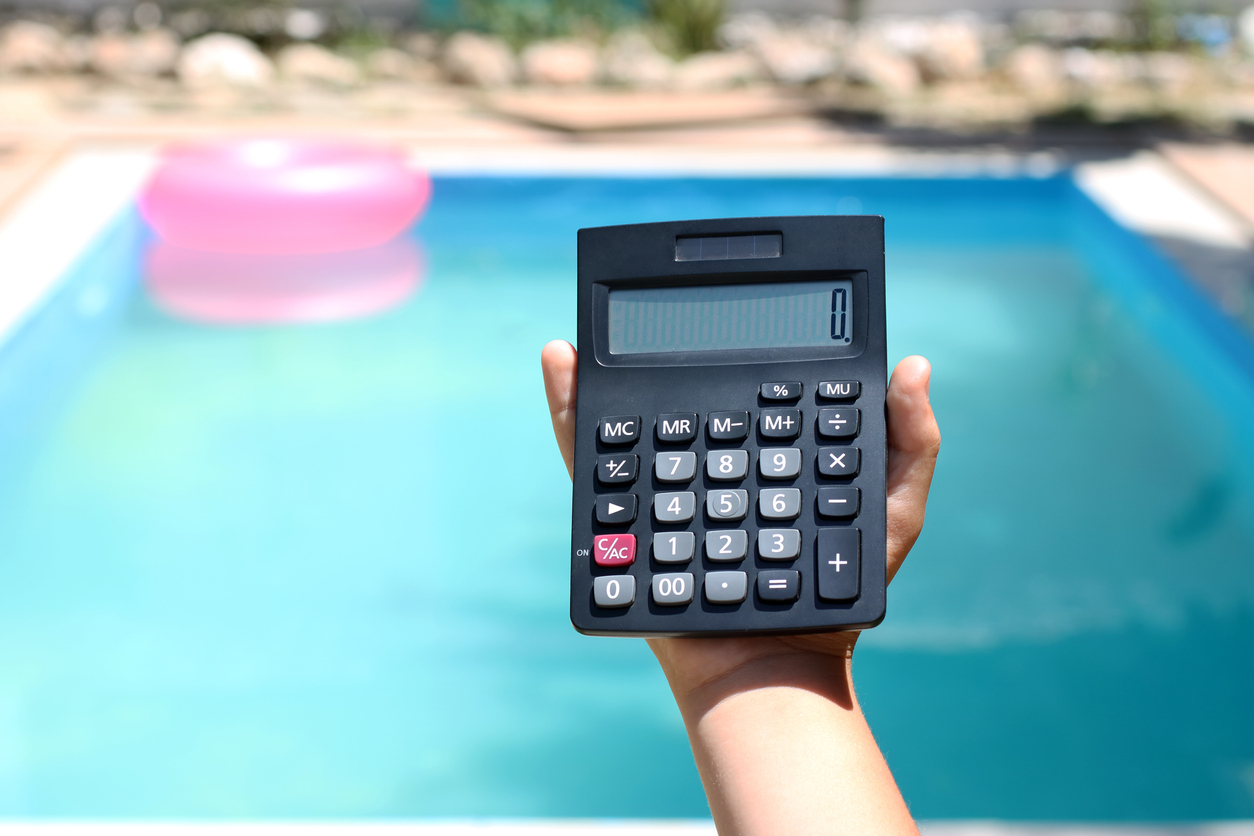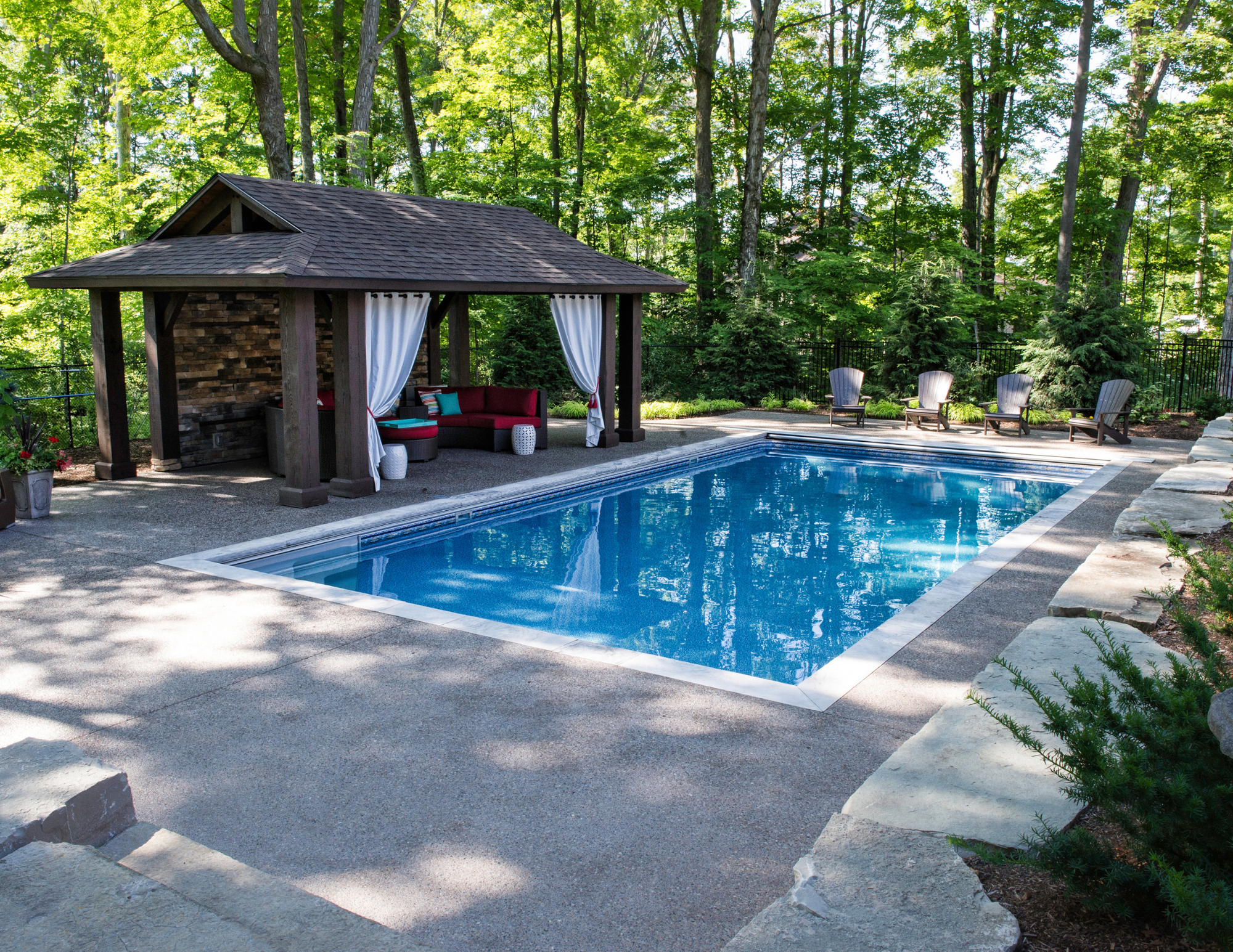Everything You Need to Know About Pool Financing
Investing in a swimming pool can be a dream come true for homeowners, but understanding the financial aspects is crucial. This guide will walk you through everything you need to know about how to finance a pool, helping you make well-informed decisions as you plan for your new backyard oasis.
How much does it cost to build a pool?
Before diving into financing options, it’s important to know the pool installation costs. Pool prices vary significantly based on factors such as size, design, and materials, but here’s a general range:
- Initial installation costs:
This includes materials, excavation, site preparation, plumbing, electrical work, decking, landscaping, and safety features. The average cost to build a pool can range from $30,000 to $90,000, depending on the scope of the project.

- Ongoing costs:
Pool ownership also comes with ongoing expenses, including electricity for equipment, chemicals for water treatment, and routine maintenance. Additionally, homeowners may face an increase in property taxes due to the added value of the pool. Keep in mind potential future upgrades and renovations as part of long-term pool ownership costs.
What you need to consider before choosing financing
Before financing your pool, take the time to evaluate your financial situation:
- Financial stability:
Make sure you have a stable income and a savings cushion to manage unexpected expenses. - Interest rates:
Compare rates across lenders to ensure you get the best deal. Even a small percentage difference can significantly impact your repayment amount. - Loan terms and repayment options:
Understand the length of the loan and the monthly payments. Ensure it fits your budget comfortably. - Healthy credit score:
Your credit score plays a critical role in determining your eligibility and the interest rate you qualify for. A higher score can secure better terms.

Pool financing options
When it comes to financing your pool, you have several options. Each has its advantages and disadvantages, so it’s important to weigh them carefully.
- Home equity loan:
Use your home as collateral to borrow a lump sum. This option often has lower interest rates but comes with the risk of losing your home if you default. - Home equity line of credit (HELOC):
A revolving line of credit that allows you to borrow as needed. This option provides flexibility but usually has variable interest rates. - Personal loans:
Unsecured loans with fixed interest rates. These are easier to obtain but typically have higher rates than home equity loans. - Cash-out refinancing:
Refinance your mortgage for more than you owe and take the difference in cash. This option may lower your interest rate but extend your mortgage term. - Secured loans:
Backed by collateral, secured loans often come with lower interest rates but put your assets at risk if you can’t repay. - Contractor financing:
Some pool builders offer financing plans. While convenient, these may have higher rates compared to other loan types. - Pool-specific loans:
Loans designed specifically for pool installations, offering tailored repayment terms. - Save up and pay cash:
The most straightforward option, saving up ensures you avoid debt, but it requires discipline and time.
How long can you finance a pool?
Pool financing terms can vary, typically ranging from 5 to 15 years, depending on the type of loan and lender. Longer terms result in lower monthly payments but higher total interest costs. Shorter terms may come with higher monthly payments but less interest paid over time.

Pool financing checklist
Before finalizing your pool financing decision, ensure you’ve ticked off the following considerations to set yourself up for success:
- Evaluated your financial health:
Have you reviewed your income, expenses, and overall financial stability to confirm you’re in a strong position to take on this investment? - Explored different financing options:
From home equity loans to contractor financing, have you considered and compared all available funding solutions? - Developed a realistic budget:
Have you created a comprehensive budget that accounts for not only the installation costs but also long-term expenses like maintenance, taxes, and future upgrades? - Researched tax and insurance implications:
Are you aware of how owning a pool may affect your property taxes and homeowner’s insurance? - Verified local regulations and permits:
Have you looked into the permits and zoning regulations for pools in your area, ensuring compliance with local laws? - Assessed the impact on your home’s value:
Have you factored in how a pool could increase your home’s market value—and potentially raise your property taxes? - Considered energy-efficient options:
Have you explored energy-saving pool equipment like solar heaters and variable speed pumps to cut down on long-term costs? - Secured buy-in from family members:
Is everyone in your household on board with the decision to install a pool, understanding the commitment and benefits? - Obtained quotes from multiple lenders:
Have you gathered and compared offers from various financial institutions to ensure you’re getting the best deal? - Read through all loan terms carefully:
Have you fully reviewed and understood the fine print of your financing agreement to avoid surprises down the line?

Don't wait to start your dream pool - find your local MPG pool builder and discuss pool payment options today.
Find your MPG pool builderConclusion
Financing a pool can seem daunting, but with the right research and planning, it’s entirely manageable. By understanding your pool loan options, weighing swimming pool costs, and working with an experienced pool builder like those in the Master Pools Guild, you can bring your vision of the perfect backyard to life without financial stress.
When you’re ready, reach out to a Master Pools Guild member to explore your pool financing options and start turning your dream pool into a reality.
